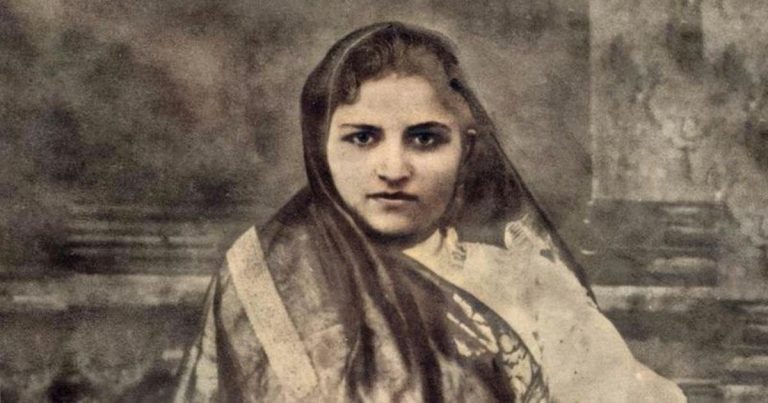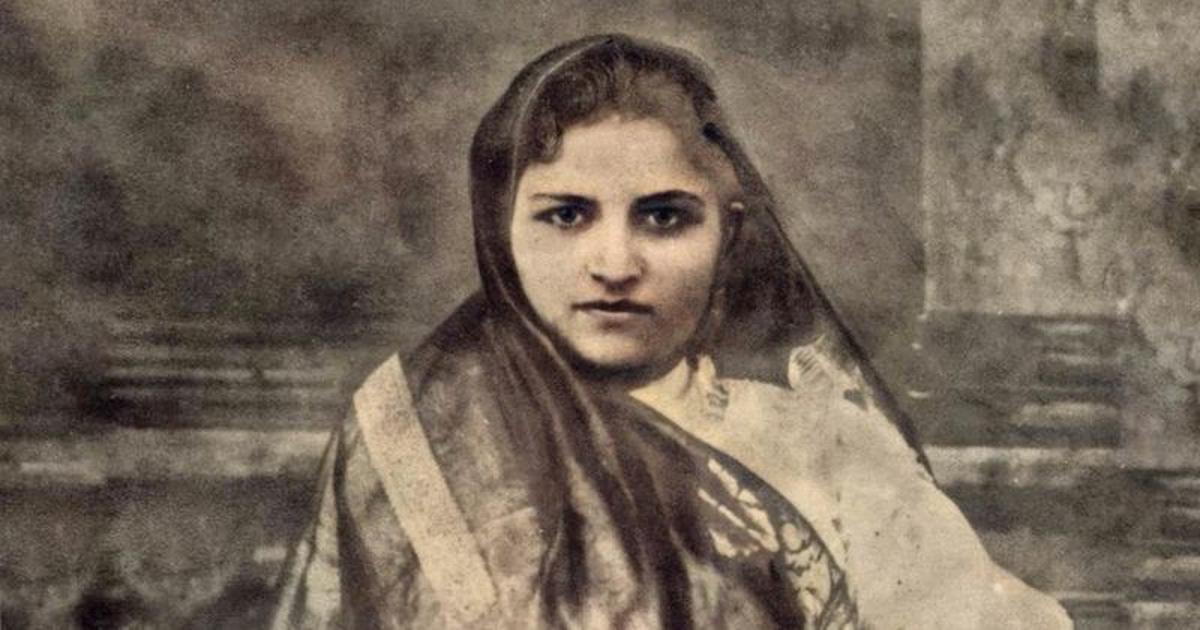
 Kala Bagai was a Peshawari woman who fought against American racism since early 20th century; she and her husband had immigrated to America from Peshawar in 1915. They were pushed out of their home they had bought in Berkeley; Kala’s husband committed suicide after the court rejected his citizenship request and was forced to liquidate his property, including his general store
Kala Bagai was a Peshawari woman who fought against American racism since early 20th century; she and her husband had immigrated to America from Peshawar in 1915. They were pushed out of their home they had bought in Berkeley; Kala’s husband committed suicide after the court rejected his citizenship request and was forced to liquidate his property, including his general store
After a year-long public campaign, the Berkeley City Council voted unanimously to approve renaming a street as “Kala Bagai Way” after a South Asian immigrant who was discriminated against in Berkeley.
This has been done a century after she was pushed out of her home by racists, a US city is honoring a woman nicknamed as ‘Mother India’. Such a decision was taken on September 19, 2020. The Berkeley is a city where 20% of the population is Asian.
___________________
Watch Video of Campaigners
___________________
Campaigners remember Kala Bagai for her “resilience, leadership, and community activism,” they said in a statement. Activists say Kala Bagai Way brings to light a larger story of South Asians in Berkeley, going back more than 100 years. This will be the first Berkeley Street named after an Asian American, and one of the first named after a woman of color.
“My family and I have been touched to see the Kala Bagai street name get so much support from community residents and unanimous endorsements throughout the process,” Rani Bagai, Kala Bagai’s granddaughter told the Facilities, Infrastructure, Transportation, Environment and Sustainability Policy Committee during a virtual meeting.
“Berkeley residents may have pushed Kala Bagai out of her own home, but naming a street after her will feel like a homecoming, not only for Kala, but for us, her family and descendants,” she said.
Kala Bagai (1892-1983) was one of the first South Asian women on the West Coast, and an early immigrant activist and community-builder.
Kala Bagai was born in Amritsar in colonized India, and immigrated to the Bay Area from Peshawar in modern day Pakistan. She survived anti-immigrant attacks in Berkeley, and then went on to build, in Southern California, one of the earliest South Asian communities in the United States. Her story is an opportunity to share with the world as a powerful example of resilience and community in the face of oppression.
Kala Bagai and her husband emigrated to the U.S. from Peshawar. The Bagais built a small business in the Bay Area and bought a home in Berkeley. When they arrived at the home with their children and their belongings, their neighbors physically barred them from moving in.
She survived local racism only to have an anti-immigrant court ruling stripped all South Asians of their citizenship. Her husband, who became a stateless person, killed himself out of despair.
But Kala Bagai persisted in the face of oppression, raising children, remarrying, and going on to become a critical California immigrant leader. Nicknamed “Mother India,” she worked tirelessly to build bridges through arts and community until her death.
Ordeal of Kala Bagai
Bagai came to the US from Peshawar what was then India in 1915 with her husband and three children. Her husband, who had inherited money from his parents and walked into the US with $25,000, was a member of the Gadar Movement, which wanted to liberate India from British colonialism, according to a family history written by the couple’s granddaughter. Its leadership was in San Francisco.
________________
Listen to audio recording of Kala Bagai’s interview in 1982
________________
At some point, probably a few years after 1915, the family bought a house in Berkeley. It had previously belonged to an English couple, Bagai recounted in a 1982 taped interview with her son. When they tried to move in, they found their way barred.
“When they pulled up to their new neighborhood with all their belongings, they found that the neighbors had locked the house so that the family could not move in,” wrote Rani Bagai on the website Immigrant Voices. “I told Mr. Bagai I don’t want to live in this neighborhood because they might hurt my children.” He agreed. “We paid for the house and they locked the doors!”
In 1921, Bagai’s husband, Vaishno Das Bagai, opened a store, Bagai’s Bazaar, on Fillmore Street in San Francisco. The family moved into an apartment upstairs. Bagai told her son they later did spend some time in Berkeley, although she did not specify any dates. The family “went back and forth” between the cities, she said.
The racist incident with the neighbors was just only one of a long string of anti-Asian racist incidents in Berkeley, said Chatterjee, who has been combing through old City Council minutes and newspapers to map of those incidents.
In 1921, Vaishno Das Bagai applied to be naturalized and became an American citizen. But, in 1923, the US Supreme Court ruled that no Indian could become an American because they were not “white.” As a consequence, Vaishno and 64 other Indians were stripped of their US citizenship, wrote Rani Bagai. Since he was no longer a citizen, he was no longer allowed to own property.

“He was forced to liquidate his property, including his general store,” she wrote.
Vaishno Das Bagai was devastated.
“Feeling trapped and betrayed, Vaishno went to San Jose alone on a business pretext, rented a room there, and took his own life by gas poisoning,” Rani Bagai wrote. “He left behind farewell letters to his wife and three sons, urging them to go on without him and to lead a good life. He also left a letter addressed to the San Francisco Examiner, explaining that he had no alternative left but to take his own life in protest.”
His widow refused to be destroyed by her husband’s suicide. “I was really lonesome. I was really lost,” she told her son.
Bagai eventually remarried, moved to southern California, put her three sons through college, and, after laws changed, became an American citizen in 1950. Her home became a center of South Asian life, earning her the nickname “Mother India,” according to a city description. She died in 1983.
_________________